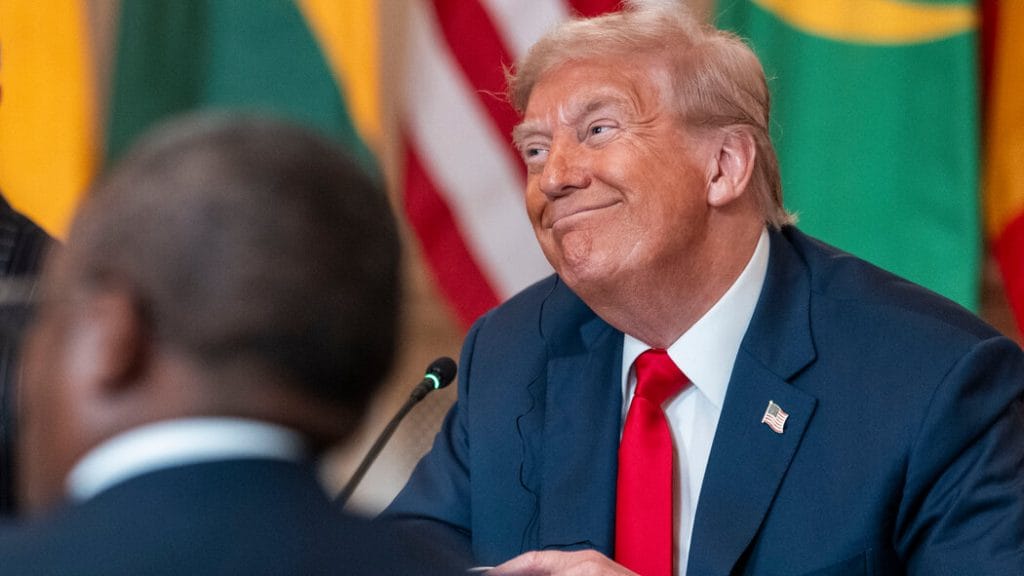Liberians have voiced frustration and disappointment after U.S. President Donald Trump made controversial comments during a White House meeting with President Joseph Boakai, questioning where the Liberian leader had learned to speak English “so beautifully.”
“Such good English. Such beautiful English,” Trump said, visibly surprised, before asking, “Where did you learn to speak so beautifully? In Liberia?” — remarks that many Liberians have called patronizing and offensive.
English has been Liberia’s official language for nearly two centuries, tracing back to the nation’s founding by freed African Americans in the 1800s. The country maintains close historical and political ties with the United States, often referring to America as its “big brother.”
Backlash Across Liberian Society
The president’s remarks sparked widespread criticism from Liberians who saw the exchange not as a compliment, but as an example of Western arrogance toward African leaders.
“Trump’s tone was clearly condescending,” said Foday Massaquoi, a leader in Liberia’s opposition Congress for Democratic Change. “It shows that African leaders are not yet treated with the dignity they deserve on the global stage.”
Moses Dennis, a businessman in Monrovia, also weighed in: “President Boakai didn’t travel to Washington for an English-speaking contest. We speak English—it’s our national language.”
Others pointed out that Liberia’s long-standing relationship with the U.S. should have prevented such misunderstandings. The country models its flag and political system after the U.S. and was among the first nations to receive USAID support in the early 1960s.
A Compliment or Mockery?
While some within the White House defended the comments, describing them as “heartfelt praise,” many Liberians interpreted them differently.
“This was mockery, not admiration,” said Siokin Barsi-Giah, a governance specialist in Monrovia. “Boakai wasn’t praised—he was belittled by the leader of the most powerful nation in the world.”
Others, however, offered a more nuanced interpretation. Abraham Wennah, a university researcher, suggested the statement reflected a deeper Western bias. “It’s part of a historical pattern—surprise when Africans speak eloquently, as if it’s unexpected,” he said. “Language has often been used to question African competence.”
Tensions After Foreign Aid Cuts
The backlash comes amid rising tensions over U.S. foreign policy. Recently, the Trump administration dismantled major aid programs like USAID in countries including Liberia, shifting its approach from aid to trade. That decision sent shockwaves through the West African nation, which relied heavily on American assistance—nearly 2.6% of its gross national income.
Many in Liberia believed their close alliance with the U.S. would shield them from aid reductions. Instead, the president’s comments have only deepened a growing sense of diplomatic betrayal.



